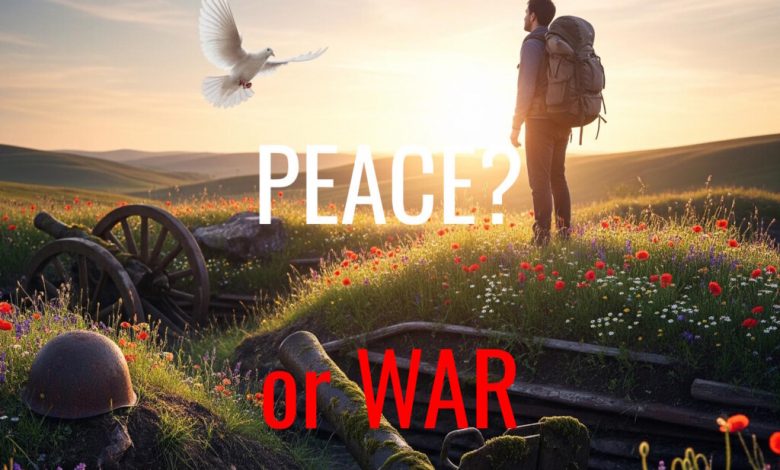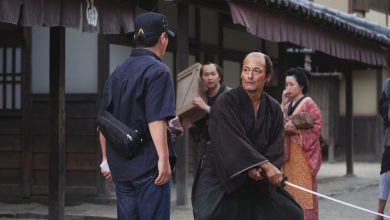

Some are calling on tourism leaders to do more to promote peace. Given that tourism is often among the first casualties of war, in what tangible and measurable ways can its leaders foster peace and understanding?
Tourism is NOT a vital source of peace
Richard Butler, Emeritus Professor, University of Strathclyde, Scotland, UK
The old adage that “tourism is a vital source of peace” would appear to stem from a belief that if one knows someone, or if a nation is in close contact with another nation, then they are more likely to be friendly with one another than people and nations who are unfamiliar with each other.
This is despite the fact that most wars are between neighbouring countries and peoples who know each other very well. Knowledge, therefore, does not automatically equate to peaceful relations. (British visitors to Germany in the late 1930s were sometimes enthusiastic over Hitler’s actions and felt he was not likely to attack.)
The tourism fallacy is that if one visits a country, one is less likely to go to war with that country; ignoring the fact that wars are rarely caused by individuals (the War of Jenkins’ Ear notwithstanding).
Overtourism is showing that visitors are not always welcome, both in terms of their number and their behaviour (actions, dress, attitudes et cetera). Sometimes, the more you know of someone, the less you like them, rather than the opposite.
Who is a tourist leader? A travel writer? An influencer? A DMO manager? A UN Tourism official? That is not really how tourism works. Even if it did, would encouraging tourists to go to Ukraine or Russia, Israel or Iran, or even to the USA, really affect government actions?
One should also remember that tourism does not stop in wartime, except in countries actually involved in hostilities, and even then often not entirely, especially domestically.
Switzerland’s tourism industry benefitted from WWII, as did Thailand’s from the Vietnam war. Vietnam itself is now effectively and sensibly using the war of independence and unity, as they see it, as a major tourist attraction.
Back to menu ^
‘Democratic institutions are the place for that’
Jim Butcher, Reader, Canterbury Christ Church University, UK; Tourism’s Horizon: Travel for the Millions
Unfortunately, I don’t think they can.
I don’t generally look to tour operators, or ‘tourism leaders’ of any sort, to bring political change.
Imperfect as they are, our democratic institutions are the place for that. And if they are not functioning well, we ought to deepen them, rather than call on heads of corporations, non-governmental organisations and, yes, academics, to promote ‘peace through tourism’.
A great deal of politics today seems to involve moral appeals upwards to the altruism of the rich, the experts, and the self-described progressives, rather than seeking a popular mandate from the people below.
Citizens, electors of sovereign governments, are instead appealed to as consumers: You too can be an ethical, thoughtful, peace-loving tourist … if you buy my product!
Looking to tourism’s great and good to promote peace also encourages corporate virtue signaling. Often tourism leaders promoting peace are promoting a brand.
Purveyor of cheap flights Michael O’Leary said: “We’re bringing cultures together ! […] I should get the Nobel peace prize – screw Bono.” His tongue was firmly in cheek, but maybe there’s half a point there.
More seriously, Bhutan’s ‘Gross National Happiness’ brand — lauded by the United Nations and critical tourism scholars alike as all about peace and happiness — is in reality a hard-nosed realpolitik, which has included expulsion of and discrimination against those who do not fit a Drukpa Buddhist identity associated with ‘peace’ and ‘happiness’.
Things are seldom what they seem when private virtues and desires like happiness and peace become the stuff of politics; an observation made by the political philosopher Hannah Arendt. That’s not to say that tourism can’t prompt questions about conflict and understanding if you’ve an open mind.
Go find out for yourself. No doubt some innovative organisations facilitate that. So too does mass travel, which declares no prior moral agenda.
Tourism’s Horizon: Travel for the Millions is a valued “Good Tourism” Partner.
Back to menu ^
‘If you want peace, vote to replace bad leaders with good’
Geoffrey Lipman, Creative Disruption Architect, The SUNx Program, Malta
Let’s get serious about this subject for once, please; not just nice words for social media.
With good leaders, the world gets peace. Tourism helps to sustain peace by creating wealth, trade, jobs, tax revenues, and people-to-people contact.
With bad leaders, the world gets war. Tourism can do nothing to change that. Indeed tourism can scarcely survive in the most affected places.
When peace returns, tourism is one of the first sectors to re-emerge, and for the same reasons above. Tourism requires peace in order to facilitate the wealth, trade, jobs, tax revenues, and people-to-people contact that most people want.
Now we have the worst ever leader; a bully in the global playground, salivating for a peace prize from an explosives company, and nominated for it by a warmonger in Gaza.
I fear for my grandkids with his war on climate resilience.
If you want peace, take a look at the Earth Charter by my friend the late Maurice Strong and Mikhail Gorbachev. That’s a recipe for peace, and we in tourism could do well to just take it on board and live by it.
If you want peace, vote to replace bad leaders with good.
The SUNx Program is a valued “Good Tourism” Partner.
Back to menu ^
‘Responsible travel can be a powerful force for understanding and harmony’
Chris Kittishinnakuppe, Head of Marketing & Sales, VHG Hospitality Asia, Thailand
Tourism is often among the first industries to falter when conflict arises. Yet, it also has the power to build bridges across cultures and support stable communities.


At Anurak Community Lodge, on the edge of Thailand’s Khao Sok National Park, we believe responsible travel can be a powerful force for understanding and harmony. Our lodge was created to connect visitors with the rainforest and the people who call it home.
Guests join community-led treks, take part in Thai cooking classes, and learn about traditional farming practices. These experiences go beyond sightseeing; they foster empathy, break down stereotypes, and create bonds of mutual respect.
Peace also grows from stability. By employing local staff, sourcing food from nearby farms, and partnering with small, family-owned businesses, Anurak strengthens livelihoods that provide security and opportunities. Each traveller who stays contributes directly to the well-being of our neighbours.
Education is equally vital. Through guided hikes, cultural workshops, and sustainability practices, visitors leave with a greater appreciation for conservation and cultural heritage. Surveys indicate that many guests return home with a deeper appreciation for Thailand and a renewed commitment to responsible travel.
In a world where divisions too often dominate, Anurak Community Lodge demonstrates that tourism can be part of the solution. By protecting nature, supporting communities, and fostering dialogue, we help transform travel into a genuine path toward peace.
Anurak Community Lodge is a valued “Good Tourism” Partner.
Back to menu ^
What do you think?
In a comment below share your own thoughts about tourism, war, and peace.
SIGN IN or REGISTER first. (After signing in you will need to refresh this page to see the comments section.)
Or write a “GT” Insight or “GT” Insight Bite of your own. The “Good Tourism” Blog welcomes diversity of opinion and perspective about travel & tourism, because travel & tourism is everyone’s business.
This is an open invitation to travel & tourism stakeholders from any background to share their thoughts in plain English with a global industry audience.
“GT” doesn’t judge. “GT” publishes. “GT” is where free thought travels.
If you think the tourism media landscape is better with “GT” in it, then please …
Back to menu ^
Previous “GT” Insight Bites
- Signalling or substance in tourism: What’s your take?
- Visitor value, values, volume: What’s good where you are?
- Outbound doesn’t care about sustainability | Well-being must include meaning
- Is a travel & tourism career still attractive? Important things to understand in 2025
- Wishwashing tourism
- Butler’s conundrum: Air travel and ‘sustainable’ tourism
- What is tourism’s biggest opportunity and/or threat where you are in 2025?
- “GT” Insight Bites: Nostalgia
- “GT” Insight Bites: Geopolitics and tourism
- Tourism stakeholders: Who has an outsized voice? Who has no voice? Who cares?
- Would you abolish taxes on tips?
- Three critics walk into a bar …
- How are emerging technologies transforming the travel & tourism industry?
- What does it mean to be critical of tourism?
- What constitutes ‘progress’ for travel & tourism in 2024?
- Considering a career in tourism? Important things you should know in 2024
- What did tourism learn from the COVID-19 pandemic?
- In 2024, what are the best opportunities for tourism over the next five years?
- Tourism’s biggest challenges & threats over the next five years to 2028
- On empowerment, promotion, and the power of expression
- On enrichment, repatriation, the double-edged blade, and war
- On tourism technology, progress, and local benefit-sharing
- Hey, travel & tourism, are you ‘neocolonialist’?
- Who’s the new boss? Asia Pacific tourism industry association seeks leader
- ‘The hospitality industry offers a great career.’ Really?
- Cruise ships: Blessing or blight?
- Tourist vs traveller: What’s the difference?
- The heads of finance, operations, and PR walk into their boss’s office …
- Yes, Tourism Minister
- What are tourism’s biggest challenges & threats over the next five years?
- ‘Tourism is built on the backbone of white supremacy’. What do you think?
- Really, what’s the difference? ‘Sustainable tourism’ vs ‘regenerative tourism’
- Want a career in tourism? Important things you should know
- Diverse perspectives on travel & tourism and a fairer world
- Diverse perspectives on economic degrowth and tourism
- Diverse perspectives on visitor dispersion
Featured image (top of post)
Gemini AI-generated image. “GT” cropped it and added the words.
Top ^





